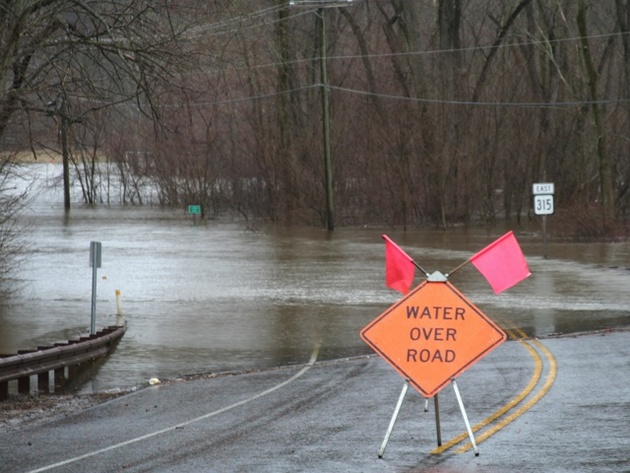
Hurricane Matthew left a trail of devastation in its wake, claiming more than 1,000 lives in Haiti and at least 33 in the United States. The Category 5 storm also caused billions of dollars in property damage.
Florida Gov. Rick Scott had a simple message as the hurricane advanced upon his state: "Evacuate, evacuate, evacuate."
While it brought only light rain to central Pennsylvania, the storm offered a couple of valuable lessons for the midstate: the importance of heeding mandatory evacuations and of being ready for the next time an emergency occurs.
Fires and floods cause most evacuations, according to the federal government's website, Ready.gov. Also, hundreds of times each year, transportation and industrial accidents release harmful substances that displace residents.
Some evacuations are mandatory, but others only are advised or up to a household's discretion. Hurricane Matthew destruction was anticipated, while other disasters occur with little or no warning. The amount of time depends on the hazard.
So it's important to plan ahead. Ready.gov offers these tips:
- Plan where to meet family members, both within and outside your neighborhood.
- Always keep at least a half-tank of gas but a full tank if an evacuation seems likely; gas stations might be closed or unable to pump in a power outage.
- Take one car so everyone is together, including pets.
- Follow evacuation routes.
- Leave before severe weather so you don't get trapped.
- Don't drive into flooded areas; watch for washed-out bridges and roads, downed power lines.
- Become familiar with alternate routes and have destinations in different directions so you have options.
- Take an emergency supply kit.
If time allows, also take these measures:
- Secure your home by closing and locking doors and windows.
- Leave a note saying when you left and where you were going.
- Wear sturdy shoes and clothing that protects (long pants, long-sleeved shirt, hat).
- Check with neighbors who may need a ride.
- Unplug electrical equipment; leave refrigerators and freezers plugged in unless there is a risk of flooding.
Floods are the most common natural disaster in the United States -- and certainly no stranger to central Pennsylvania. (Most homeowner policies don't provide flood coverage, as we explain in this blog post.)
The American Red Cross offers a number of tips for responding appropriately to a flood, including being prepared to evacuate at a moment's notice.
- If a flood or flash-flood warning is issued for your area, head for higher ground and stay there.
- Stay away from floodwaters. If you come upon a flowing stream where water is above your ankles, stop, turn around and go another way. Six inches of swiftly moving water can sweep you off your feet.
- If you come upon a flooded road while driving, turn around and go another way. If you are caught on a flooded road and waters are rising rapidly around you, get out of the car quickly and move to higher ground. Most cars can be swept away by less than two feet of moving water.
- Keep children out of the water. They are curious and often lack judgment about running water or contaminated water.
- Be especially cautious at night when it is harder to recognize flood danger.
Whether it's a flood or hurricane or other emergency, the message is the same: take evacuations with utmost seriousness. In anticipation of Hurricane Matthew, Craig Fugate, administrator for the Federal Emergency Management Agency, noted:
"If instructed to evacuate, don't wait. You can always repair and rebuild -- and we'll be here to help you do that. The most important thing you can do is keep you and your family safe."
